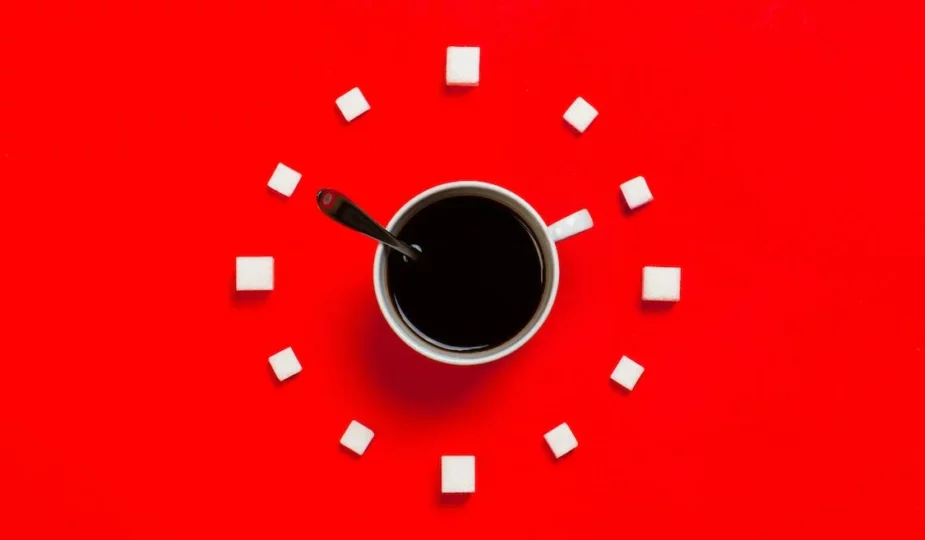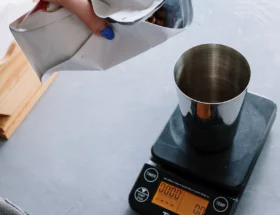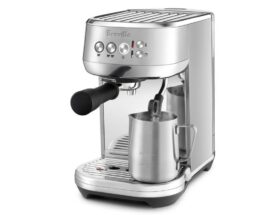
Coffee’s Secret Weapon: Why It Has Caffeine
Do you find yourself reaching for that steaming cup of coffee every morning, unable to start your day without it? You’re not alone. Coffee has become a beloved beverage for millions of people around the world, delivering a much-needed boost of energy and increasing alertness.
But have you ever wondered why coffee has such a powerful effect on our bodies? The secret lies in its main ingredient – caffeine. In this blog post, we will delve deeper into the science behind coffee’s secret weapon and explore why it has caffeine.
So grab a cup of coffee and get ready to dive into the world of this beloved beverage’s not-so-secret ingredient.
Table of Contents
The Most Popular Beverage
When it comes to popular beverages around the world, coffee undoubtedly takes the crown. Loved by millions, this aromatic and energizing drink has become an essential part of our daily routines. But have you ever wondered why coffee has such a stimulating effect? The secret lies in its most famous and sought-after ingredient: caffeine.
Caffeine is a naturally occurring substance found in the seeds, leaves, and fruits of some plants. It acts as a central nervous system stimulant, meaning it can temporarily ward off drowsiness and restore alertness. While present in various foods and beverages, coffee is the most well-known and widely consumed source of caffeine.
But how does caffeine work its magic? How does it transform us from groggy zombies into alert and focused individuals? To understand why coffee has caffeine, we need to delve into the secrets behind this incredible elixir.
Coffee’s Secret Weapon: Why It Has Caffeine
The Science Behind Caffeine
We all know that cup of coffee can give us an energy boost, but have you ever wondered why? The secret lies in a naturally occurring compound called caffeine. Caffeine acts as a stimulant that affects our central nervous system, keeping us alert and awake.
So, how does caffeine work?
Caffeine works by blocking the effects of a neurotransmitter called adenosine. Adenosine is responsible for making us feel relaxed and sleepy. When caffeine enters our bloodstream, it binds to adenosine receptors in our brain, effectively preventing adenosine from slowing us down.
This process triggers the release of other neurotransmitters like dopamine and norepinephrine, which increase brain activity and give us that familiar jolt of energy. In addition to boosting our energy levels, caffeine also enhances our cognitive functions, including improved focus, alertness, and reaction time.
The Origins of Coffee’s Caffeine
Now that we understand how caffeine works, let’s dive into how it ends up in our favorite morning beverage: coffee.
Coffee beans are actually seeds of a species called Coffea. These seeds contain natural caffeine as a defense mechanism against pests. When consumed, caffeine acts as a natural insecticide, paralyzing or killing the insects that try to eat the coffee plant.
But how does caffeine get from the coffee plant to our cup?
The process begins with the coffee cherries, which are harvested and processed to extract the beans. The green coffee beans are then roasted to perfection, a crucial step in developing the flavors we love. During the roasting process, caffeine content is affected, with darker roasts generally containing less caffeine than lighter roasts.
Once the roasted beans are ground and brewed, hot water extracts the caffeine, along with all the other aromatic compounds, resulting in our beloved cup of coffee.
The Varying Levels of Caffeine
It’s important to note that not all coffee varieties contain the same amount of caffeine. Different factors such as the type of coffee bean, the brewing method, and the serving size can all influence the caffeine content in your cup.
For example, Robusta coffee beans generally have a higher caffeine content compared to Arabica beans. Similarly, espresso shots tend to have more caffeine per serving than drip coffee due to the concentrated brewing method.
So, how much caffeine is in your cup of coffee?
- Regular brewed coffee: On average, an 8 oz cup of brewed coffee contains around 95 mg of caffeine.
- Espresso: A 1 oz shot of espresso can contain approximately 63 mg of caffeine.
- Decaffeinated coffee: While the name suggests otherwise, decaf coffee still contains a very small amount of caffeine, usually around 2-12 mg per 8 oz cup.
In conclusion, the secret weapon of coffee lies in its caffeine content. By blocking adenosine receptors in our brain, caffeine keeps us awake and energized. The natural defense mechanism of coffee plants, caffeine not only protects the plants but also provides us with a stimulating beverage. So, the next time you enjoy a cup of coffee, remember to savor its secret weapon!
Supporting Evidence and Examples
Let’s dive deeper into the science behind coffee’s secret weapon – caffeine. Here, we’ll explore the evidence and examples that support the claims about the effects of caffeine on our bodies:
- Research studies: Numerous studies have been conducted to understand the impact of caffeine on the human body. For example, a study published in the Journal of Psychopharmacology found that caffeine consumption can improve alertness, attention, and cognitive performance. This shows that caffeine is indeed a powerful substance.
- Physical effects: When you consume caffeine, it quickly enters your bloodstream and reaches your brain. This stimulates the release of neurotransmitters, such as dopamine and norepinephrine, which contribute to increased focus and improved mood. This physical response provides tangible evidence of caffeine’s effects.
- Energy boost: One of the most well-known effects of caffeine is its ability to provide an energy boost. This is because it blocks adenosine receptors in the brain, which helps prevent drowsiness and keeps you awake and alert. Many people rely on coffee to get them through a long day or to enhance their productivity during work or study sessions.
- Athletic performance: Caffeine has also been shown to enhance physical performance. Studies have revealed that caffeine can increase endurance, reduce perceived exertion, and improve muscle strength and power. Athletes often rely on caffeine to improve their performance during workouts or competitions.
- Social and cultural examples: Coffee culture around the world is a testament to the power of caffeine. From coffee shops bustling with people seeking their daily dose of caffeine to cultural rituals centered around coffee, such as the traditional Japanese tea ceremony, coffee’s secret weapon has become deeply ingrained in our societies.
These pieces of supporting evidence and examples not only highlight the physiological effects of caffeine, but also demonstrate its influence on our daily lives. With this knowledge, it’s clear why coffee has become such a popular and beloved beverage.
Frequently Asked Questions
1. How does coffee get its caffeine?
Coffee gets its caffeine from the seeds of the Coffea plant. The plant naturally produces caffeine as a defense mechanism against insects. When the seeds are harvested, they are roasted and ground to make coffee. During the roasting process, the caffeine is released, giving coffee its energizing properties.
2. How much caffeine is in a cup of coffee?
The caffeine content in coffee can vary depending on factors such as the type of coffee beans and the brewing method. On average, a regular 8-ounce cup of coffee contains around 95 milligrams of caffeine. However, some specialty coffees and espresso drinks may have higher caffeine concentrations.
3. Does caffeine have any benefits?
Yes, caffeine has several potential benefits when consumed in moderation. It can increase alertness, boost energy levels, improve focus and concentration, and even enhance physical performance. Additionally, some studies have shown that caffeine may have certain protective effects against certain diseases.
4. How much caffeine is too much?
The recommended daily caffeine intake for adults is typically around 200-400 milligrams. Consuming more than 400 milligrams of caffeine per day can lead to symptoms like restlessness, insomnia, increased heart rate, and digestive issues. However, the sensitivity to caffeine can vary from person to person, so it’s important to listen to your body and adjust your caffeine intake accordingly.
5. Are there any alternatives to coffee for a caffeine boost?
Yes, if you prefer to limit your coffee consumption or are looking for alternative sources of caffeine, there are other options available. Some popular alternatives include tea, energy drinks, and certain soda beverages. Additionally, natural sources like matcha green tea, yerba mate, and even dark chocolate can provide a moderate caffeine kick.
6. Are there any health risks associated with caffeine consumption?
While moderate caffeine consumption is generally considered safe for most healthy adults, excessive intake can lead to negative health effects. These may include increased anxiety, disrupted sleep patterns, digestive issues, and potential addiction or dependence. It’s essential to understand your own tolerance and consume caffeine in moderation.
Conclusion
In conclusion, caffeine is coffee’s secret weapon, providing it with its energizing effects and making it a beloved beverage worldwide. While many people enjoy coffee for its taste and aroma, the caffeine content is what keeps us coming back for more.
Throughout this blog post, we’ve explored the science behind caffeine, its impact on the body, and the reasons why coffee has become the go-to source for this powerful stimulant. From the way caffeine interacts with adenosine receptors to how it boosts dopamine production, the effects of caffeine are clearly remarkable.
Furthermore, we’ve also touched on the variety of factors that influence the caffeine content in coffee, including the brewing method, coffee bean type, and roasting level. Understanding these factors can help coffee enthusiasts make informed decisions about their beverage of choice.
So, the next time you enjoy a cup of coffee, take a moment to appreciate the caffeine working its magic in your body. And remember, moderation is key when it comes to caffeine consumption. While it can provide a much-needed boost, it’s important to listen to your body and be mindful of your overall caffeine intake.
Thank you for joining us on this caffeinated journey! Now it’s your turn to get involved. Share your thoughts, experiences, or favorite coffee recommendations in the comments section below. Let’s brew up some conversation!









